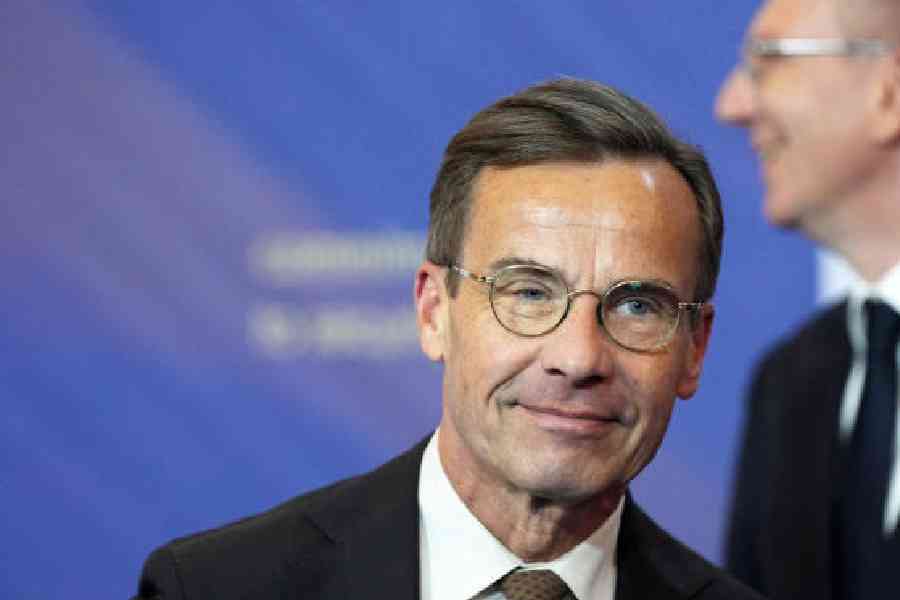Iran and Sweden exchanged prisoners on Saturday in a major breakthrough, according to the Swedish Prime Minister.
Iran released the EU diplomat and Swedish national Johan Floderus, who had been arrested in April 2022 in Tehran, as well as the dual national Saeed Azizi, the Swedish Prime Minister said.
“It is with pleasure that I can announce that Johan Floderus and Saeed Azizi are now on a plane home to Sweden, and will soon be reunited with their families,” the Prime Minister, Ulf Kristersson, said on social media.
In exchange, Sweden released Hamid Noury, a high-ranking Iranian official who had been sentenced to life in a Swedish court for war crimes committed in 1988 in Iran. The swap was coordinated with the help of Oman, according to a statement published by the Omani state news agency.
“Iran used them both as pawns in a cynical negotiations game with the purpose of getting the Iranian citizen Hamid Noury released from prison in Sweden. He is convicted of serious crimes committed in Iran in the 1980s,” Kristersson said.
“As Prime Minister I have a special responsibility for Swedish citizens’ safety. The government has therefore worked intensively on the issue, together with the Swedish security services which have negotiated with Iran.”
Kristersson declined to give further details around the considerations.
Noury, 63, was arrested at a Stockholm airport in 2019 and later sentenced to life in prison for war crimes for the mass execution and torture of political prisoners at the Gohardasht prison in Karaj, Iran, in 1988. He denied the charges.
Floderus was arrested in Iran in 2022 and charged with spying for Israel and “corruption on earth”, a crime that carries the death penalty.
In 2022, the Stockholm District Court sentenced Nouri to life in prison over his role in the executions.
It identified him as an assistant to the deputy prosecutor at the Gohardasht prison outside the Iranian city of Karaj. The 1988 mass executions came at the end of Iran’s long war with Iraq.
After Iran’s then-Supreme Leader Ruhollah Khomeini accepted a UN-brokered cease-fire, members of the Iranian Opposition group Mujahedeen-e-Khalq, heavily armed by Saddam Hussein, stormed across the Iranian border in a surprise attack.
Iran ultimately blunted their assault, but the attack set the stage for the sham retrials of political prisoners, militants and others that would become known as “death commissions”.
New York Times News Service and AP/PTI











